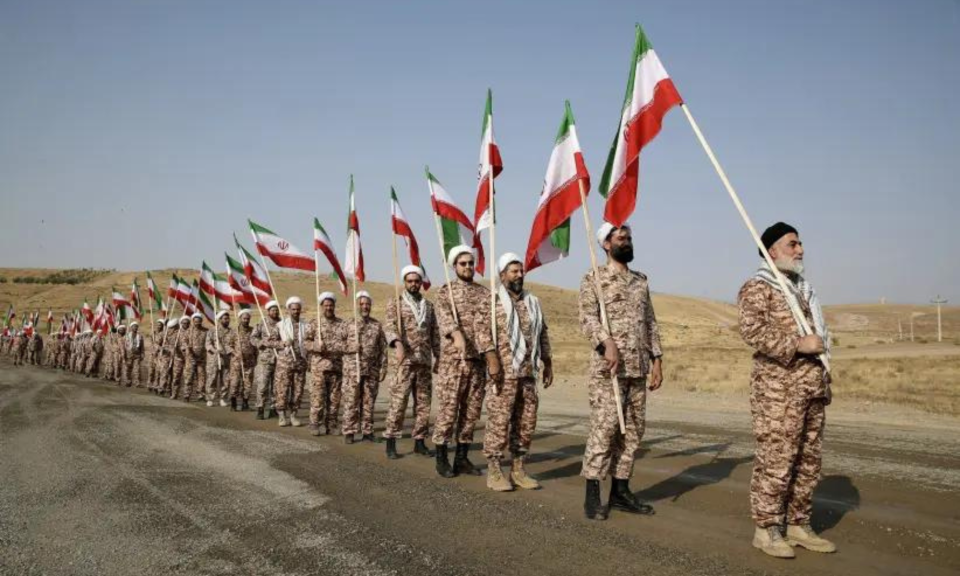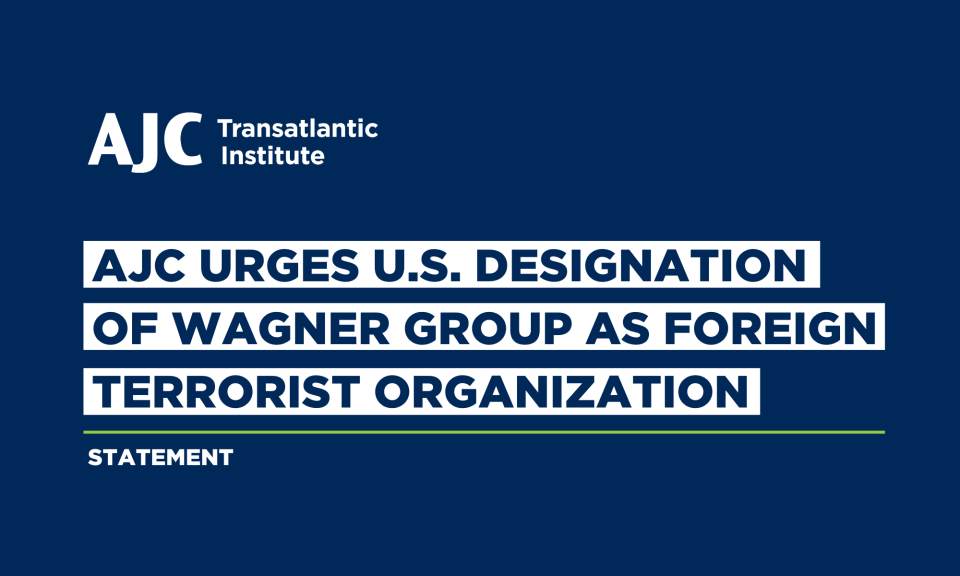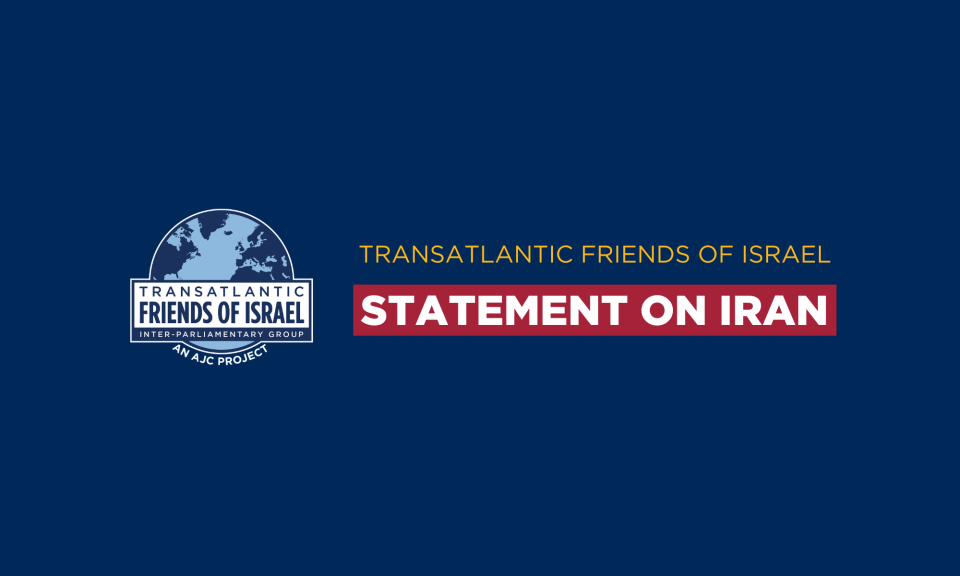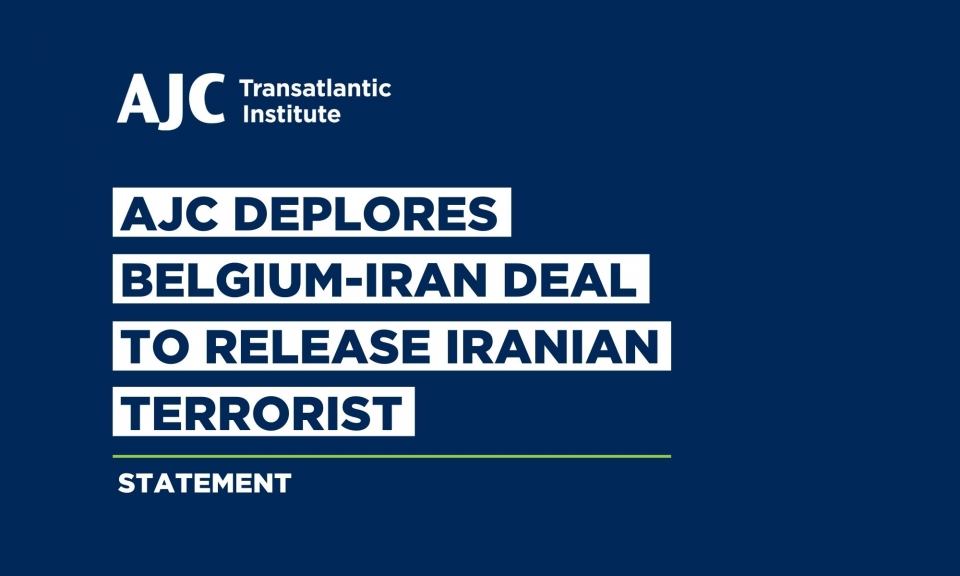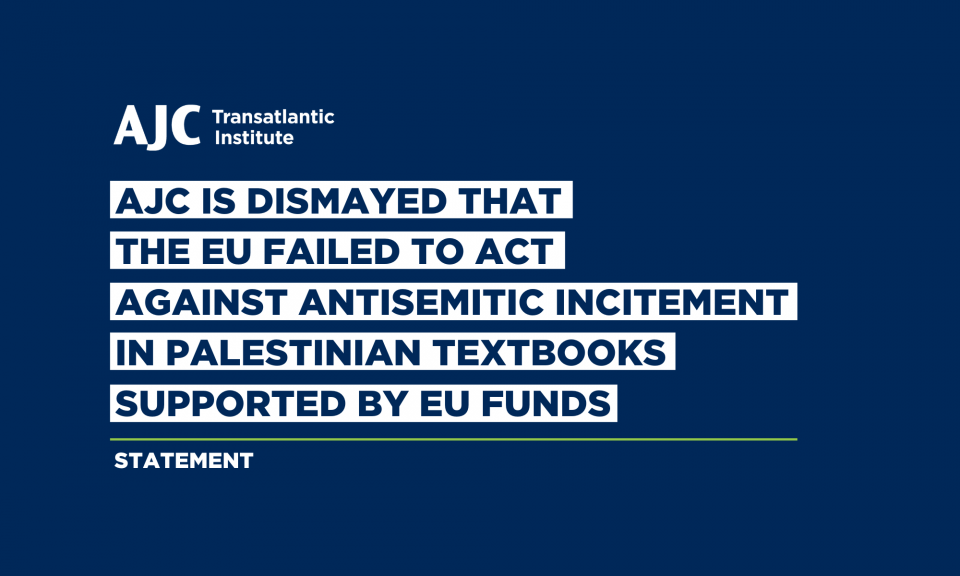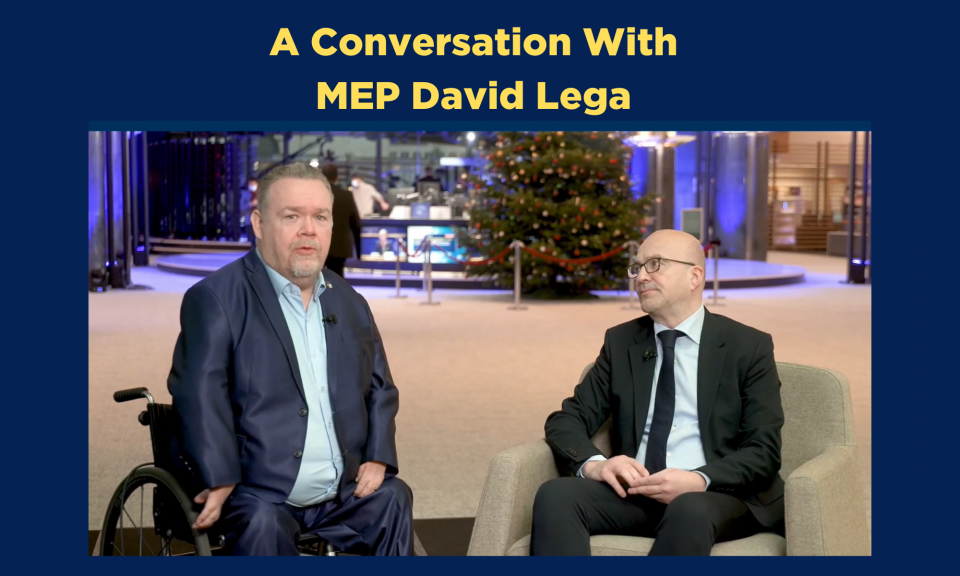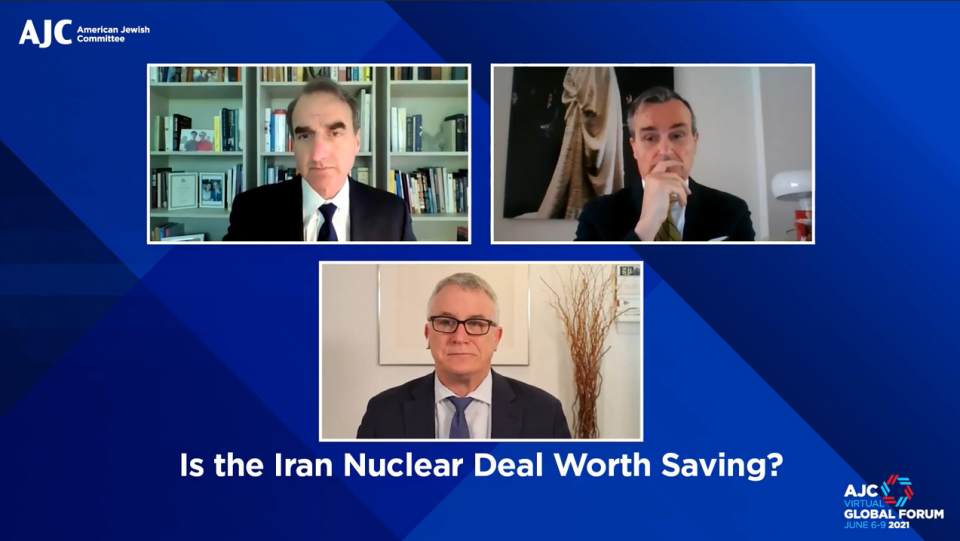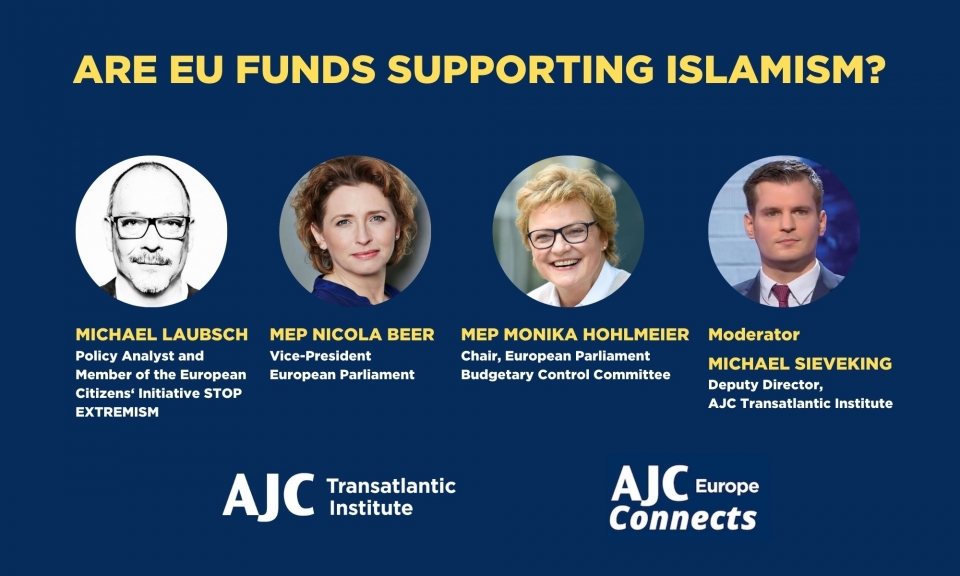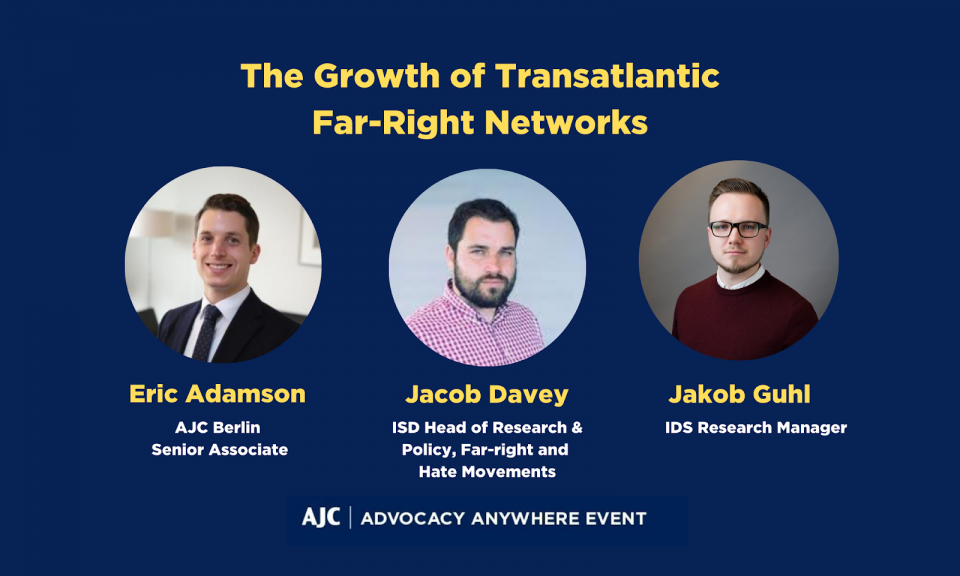Analysis
Letter from a City on Lockdown
By Daniel Schwammenthal
25 November 2015
BRUSSELS — You know something has gone awfully wrong when you get phone calls from friends and family in Israel who are worried about your personal safety in Europe’s capital.
The now four-day long Brussels lockdown in response to fears of imminent, multiple terror attacks is both reassuring and disturbing. Reassuring because finally, after previous governments preferred denial, the authorities are taking the enemies of free society seriously.
Recent police raids must have yielded crucial intelligence, the argument goes, to lead to such extraordinary steps as sending military personnel to patrol the city’s streets and shutting down the subway, schools, and museums, and canceling all cultural events.
But these very steps are also disturbing and infuriating. How is it possible that the Islamist threat was allowed to fester and grow to such levels that we now see no option but to turn our cities into ghost towns?
The Economist wrote recently that the Paris terror attacks are “testing the capital’s reputation for joie de vivre — and its resolution not to become Tel Aviv-sur-Seine.” Paris, Brussels and the rest of Europe should be so lucky — and not just because of the great beaches, food and culture the Big Orange has to offer.
Not even when facing the most horrendous Palestinian terror wave in the early 2000s did Tel Aviv, or any other Israeli city for that matter, shut down public life or declare a state of emergency.
Europe’s leaders, often busy criticizing Israeli anti-terror techniques, would be well-advised to quickly call their colleagues in Jerusalem to learn about those very techniques. We must also learn from Israel about public resilience, which allows the Jewish state to fight terror without canceling football matches and closing shopping centers and discos — in short without giving up that “joie de vivre.”
Much has been said about the peculiar circumstances that have turned Brussels and its particularly troubled district of Molenbeek into safe havens for Jihadists. But let’s not kid ourselves. The same misguided political correctness that allowed the creation of parallel societies and the spread of radical Islam in Belgium can be found throughout Europe.
The problems may be more pronounced here but pretty much every European city with a sizeable Muslim community experiences similar challenges. About 120 Muslims have left Gothenburg, Sweden’s second biggest city, to join the butchers in Syria. About as many — and possibly more — British Muslims fight for ISIL as for Britain.
We need a brutally honest assessment of the true dimensions of the problem, which is unfortunately not limited to the thousands of European Muslims who have joined ISIL and threaten our security upon their return — as formidable as this threat is.
Our challenge is not simply terror, ISIL, or “violent extremism,” as some prefer to obfuscate the problem. The challenge is the ideology fueling this violence: Some call it Islamism, others radical or political Islam.
Those thousands of European fighters in Syria and Iraq didn’t emerge out of a vacuum but out of a much larger pool of coreligionists who, even if most of them won’t use violence themselves, at least share some of the terrorists’ beliefs.
In a BBC poll after the murders at Charlie Hebdo and the kosher supermarket in January, 27 percent of Muslims polled said they had “some sympathy for the motives behind the Paris attacks.” Most other EU countries prefer not to conduct such polls.
One of the few social scientists who tries to systematically quantify the problem is Professor Ruud Koopmans, director of the research unit for migration, integration, and transnationalization at the Berlin Social Science Center, and his research makes for grim reading.
In an article published last year based on a survey among native Christians and Muslims of Turkish and Moroccan descent in Germany, France, the Netherlands, Belgium, Austria and Sweden, he concluded that “religious fundamentalism is not marginal among Western European Muslims.”
About 75 percent think “there is only one possible interpretation of the Quran, which is binding for every Muslim” and 65 percent say “that religious rules are more important to them than the laws of the country in which they live.”
According to Koopmans, Muslims also show much higher levels of “out-group hostility,” as social scientists call it, and so 57 percent reject homosexual friends, 45 percent do not trust Jews and 54 percent see “the West as an enemy out to destroy Islam.”
This means counter-terrorism doesn’t start and end with tracking down terrorists. It begins with offering a counter to these ideas. Nobody, whether Muslim or Christian or atheist, simply wakes up one day hating Jews or gays. Hate is being taught and we must now once and for all show zero tolerance for this hate — no matter who preaches it.
This requires a radically different approach across various policy fields, from foreign policy to education and policing. It is astounding that 14 years after 19 hijackers — 15 of whom were Saudi — flew two planes into the Twin Towers, the West’s relationship with the Kingdom and like-minded Gulf States has not changed.
We have never done more than pay lip service to the human rights violations in Saudi Arabia. We prefer business as usual despite public beheadings, gender apartheid and the suppression of all non-Wahhabi religions, apostates and atheists. It is one thing, though, to give up on changing Saudi Arabia, and a totally different matter to allow Saudi Arabia to continue to try to change us and to poison the minds of young Europeans.
It is imperative that we cut off Saudi and other foreign funding for radical mosques and schools in Europe. Some may shy away from such a step, citing issues of religious freedom. But we ought to understand by now that education, and certainly religious education, is a matter of national security. Just as we would never allow, say, a Kremlin-linked company to take over a vital European defense company and instead limit the otherwise free flow of capital in the interest of national security, we can no longer allow the free flow of foreign capital to take over our mosques, schools and universities. We need to understand that these days young impressionable minds are a matter of national security.
* * *
To protect our free societies, we must outlaw any interference from unfree societies in our educational and religious systems. The annual ranking of Freedom House, which categorizes countries as either free, partly free or unfree, can serve as our yardstick for new legislation. Only “free” should be good enough from now on.
This also means we can no longer dismiss extremist indoctrination in our southern neighborhood as the domestic affairs of foreign countries beyond the reach of our diplomacy, particularly not if those countries receive untold billions of our generous aid.
Be it the Palestinian Authority or Egypt, we need to demand and receive an immediate end to radical religious incitement in state-controlled media, schools and mosques. Let’s begin by cutting off the satellite signals of those Middle East TV stations — and there are plenty — that spread anti-Western conspiracy theories, anti-Semitism and radical Islam into our living rooms, just as we would never allow domestic TV broadcasts to run outright racist material. Foreign hate preachers need to be speedily expelled and those schools and mosques tolerating such preaching should be closed.
Effectively countering radicalization also means that we stop finding excuses, let alone justifications, for Islamist terror. The very idea that, because Europe has not yet created the perfect society and eradicated all forms of discrimination, or that because of some far-away conflict young Muslims in our cities somehow turn to terror, is deeply offensive and self-defeating.
It is offensive to Muslims because it deprives them of agency and responsibility — in what has been called the soft bigotry of low expectations. It is offensive to Europe because irrespective of our imperfections, we have created the most humane and prosperous societies history has ever seen, which is exactly why so many millions of Muslims came to this continent and why so many still turn to us for refuge from war and persecution. It is also self-defeating because it undermines our efforts, particularly those within the Muslim community, to counter radicalization.
Unless we find our inner Churchill and understand that this must become Europe’s “finest hour,” the state of emergency risks becoming a permanent feature of daily life at the heart of the continent.
Daniel Schwammenthal is the director of the AJC Transatlantic Institute.

